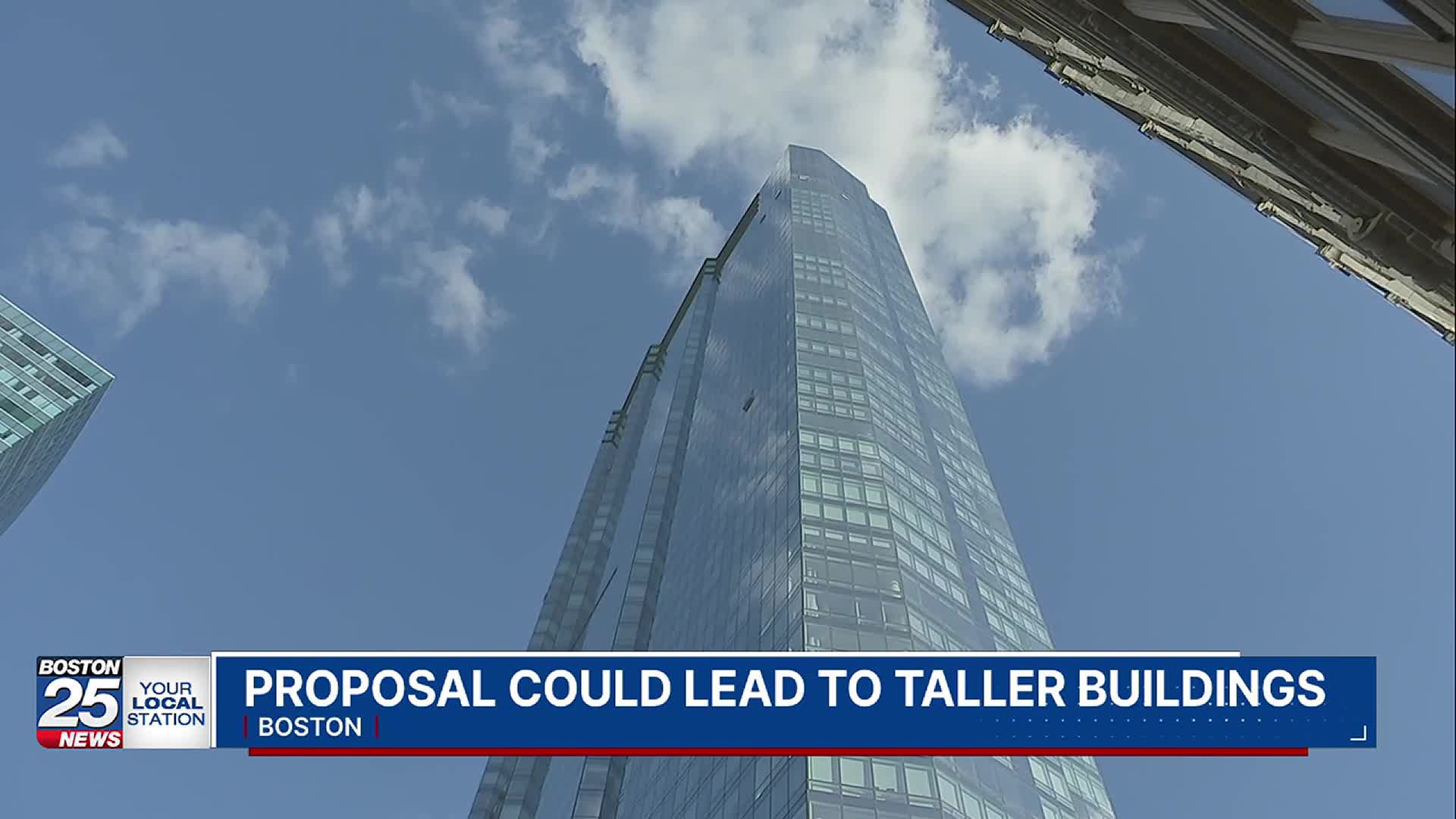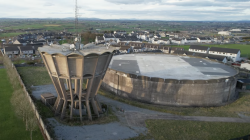Boston’s Skyline Expansion and the Debate Over Urban Growth
Boston’s skyline is on the verge of a significant transformation, with proposed zoning changes that could allow for the construction of skyscrapers reaching 700 feet—equivalent to about 70 stories. This development has sparked concerns among critics who fear that such growth might lead to what they call “Manhattanization,” potentially threatening the city’s historic character and preservation efforts.
Currently, the tallest buildings in downtown Boston are the Winthrop Center at 691 feet and the Millennium Tower at 684 feet. The new proposal aims to increase the height limit in certain areas, which could drastically alter the skyline. These changes are part of a broader initiative to address the city’s housing crisis by creating more residential spaces.
Over 800 public comments have been submitted to the city, many of which express strong opposition to the plan. Esther Messing, one of the commenters, wrote, “This plan represents the ‘Manhattanization’ of Boston, and I am strongly opposed to that happening in a city with a totally different history, character, and size from that of New York.”
The Downtown Boston Neighborhood Association has been working closely with local residents, business leaders, and city officials to address these concerns. Rishi Shukla, representing the association, emphasized the importance of getting the planning right. “We have a once in a generation opportunity to get planning and development right at the core of downtown Boston. We want to make sure we’re not building a canyon of luxury towers.”
The proposed zoning changes also include measures to protect Boston Common and the Public Garden. The maximum height of buildings will decrease closer to these iconic green spaces. Two state laws are in place to prevent excessive shadowing over these parks, but these rules were challenged in 2017 when an exemption was granted for the Winthrop Center.
Shukla highlighted the impact of such developments on the neighborhood. “Putting towers up closer to the parks and open spaces fundamentally alters the complexion of the neighborhood. A well thought out plan means getting the height right. It means getting the infrastructure right. It means getting the shadows right.”
The downtown zoning proposal could serve as a model for Mayor Wu’s vision to rezone other neighborhoods. Her office is engaging with stakeholders before the proposal moves forward in September. A statement from Friends of the Public Garden Board Chair Leslie Singleton Adam said, “We believe Boston can achieve both dynamic and broadly beneficial growth as well as the protection of sunlight and green space, and we will continue to engage the city and other partners to help realize that vision.”
A spokesperson for Mayor Wu’s administration expressed gratitude for the community feedback. “She has asked the Planning Department to more explicitly incorporate the shared goal to boost residential development and housing creation Downtown before advancing the plan this fall. The Administration believes that curating the right mix of housing, commercial, and retail uses Downtown will continue improving safety, boosting foot traffic, and creating the best possible environment for businesses and neighbors.”
In addition to the downtown area, the Boston Planning Department is considering allowing taller buildings in neighboring Chinatown. Some residents and business owners are worried that higher land values may lead to increased rents or property sales. Lydia Lowe, Executive Director of the Chinatown Community Land Trust, voiced concerns about the potential displacement of residents and small businesses.
Lowe mentioned that the effects of “upzoning” are already being felt in the neighborhood. She noted that two businesses co-owned by the same family faced an $11,000 monthly rent increase, and some tenants are facing displacement from affordable housing.
As the debate continues, the future of Boston’s skyline remains uncertain. The city is navigating the balance between growth and preservation, with ongoing discussions shaping the direction of urban development. This story is developing, and updates will be provided as more information becomes available.







